
Recorded in Montreal in 1992, pianist Paul Plimley, bassist Lisle Ellis, and drummer-vibraphonist Gregg Bendian shape a dark-hued free jazz session with strong compositional ideas, shifting between shadowy swing, turbulent energy, and adventurous textures, while Bruce FreedmanŐs sax adds sharp focus on select tracks.
In Stock
Quantity in Basket: None
Log In to use our Wish List
Shipping Weight: 5.00 units
EU & UK Customers:
Discogs.com can handle your VAT payments
So please order through Discogs
Sample The Album:
Lisle Ellis-bass
Gregg Bendian-drums, vibraphone, percussion
Paul Plimley-piano
Bruce Freedman-saxophone
Click an artist name above to see in-stock items for that artist.
UPC: 777405002228
Label: Les Disques Victo
Catalog ID: VICCD022
Squidco Product Code: 23951
Format: CD
Condition: New
Released: 1993
Country: Canada
Packaging: Jewel Case
Recorded October 1992 at Silent Sound Studio in MontrŽal.
"Noir is one of Canadian pianist Paul Plimley's best trio sessions. It was recorded in a Montreal studio over two days in October 1992. Longtime partner Lisle Ellis is on bass, more recent encounter Gregg Bendian on drums, and saxophonist Bruce Freedman guests on two tracks. All but Freedman contributed pieces, but the overall mood is marvelously homogeneous and best described by the title -- these are the dark corners of free jazz. The set opens with "Noir," a lightly sketched theme with jazzy overtones which feels like a triple soliloquy addressed to the moon (the theme comes back in "Noir Encore," a second take rendering the working canvas of the piece more explicit). "Open Apertures" is more thoroughly written and features Freedman. Its theme could almost have been lifted from Thelonious Monk's songbook. Ellis' "Fade to Gray" and "Fade to Gray Then Blue" are also very jazz-oriented -- on the former Bendian alternates between his drum kit and the vibraphone. And then, there arethose three pieces by Bendian. "Jill Cyborg" is a conventional (but very well-executed) free jazz tune in the form of a main theme/let's break apart/let's get back together. Paradoxically, "Sleeves of Alloy" is a piano/bass duet written by a drummer -- and it's a lot closer to Xenakis than Monk. Ellis keeps shifting elegantly from his bow to his fingers. "To David Cronenberg: Interzonia" brings in some Edgar Varese and a very dark atmosphere nourished by loud dramatic chords and disquieting suspensions. There is nothing left of free jazz here: This track is the most tightly written of the set, and is one of Bendian's strongest compositions. Strongly recommended."-Francois Couture, All Music
Artist Biographies
• Show Bio for Lisle Ellis "Lisle Ellis, (born November 17, 1951) is a Canadian jazz bassist and composer who is known for his improvisational style and use of electronics. Ellis was born in Campbell River, British Columbia. Ellis began playing electric bass in his teens and worked professionally from an early age in numerous environments including studios, radio & TV shows, and strip clubs. He was born Lyle Steve Lansall, but used his initials L. S. as his stage name Ellis; he also used the name L. S. Lansall-Ellis professionally. Ellis studied at the Vancouver Academy of Music with Walter Robertson and attended Douglas College in Vancouver. He later studied at the Creative Music Studio in New York City from 1975-1979. Ellis lived in Toronto, Ontario, Canada from 1982 until 1983 and then Montreal, Quebec, Canada from 1983 until 1992. In 1986 Ellis was the first recipient of Canada's Fred Stone Award, given annually to a musician for integrity and innovation. In the early 1980s in Vancouver, and the late 80's in Montreal, Ellis was a conspicuous activator of musician alliance organizations, performance venues, and concert series presentations. One collective in particular, Vancouver's New Orchestra Workshop, is still active nearly thirty years later. After moving to the United States in 1992, he settled in San Francisco, working with Glenn Spearman from 1992 until 2001. He lived in San Diego from 2001Đ2005 and New York City from 2005 to the present. In 1994, he was a member of the Cecil Taylor band for a brief tour of California. Ellis's discography includes performances with Peter Brštzmann, Andrew Cyrille, Joe McPhee, Dave Douglas, Glenn Spearman and about 40 recordings for Music & Arts, Black Saint, DIW, Hat Art, New World, and Victo. His 1989 album, Kaleidoscopes: The Ornette Coleman Songbook, with pianist Paul Plimley, was given five stars in Down Beat magazine. Since the late 1990s, Ellis has been primarily focused on developing an electro-acoustic interface he calls "bass & circuitry". By 2008, with the completion of a template for this interface Ellis turned his attention back to acoustic music projects with an emphasis on jazz based improvisation and to finding a balance between his electronic and acoustic music interests. Central to Ellis's music, and a vehicle for both his electronic and acoustic experiments, has been his long standing trio with Larry Ochs and Donald Robinson called What We Live. Di Terra, an Italy-based trio with Alberto Braida (piano), and Fabrizio Spera (drums), has been an exclusively acoustic music vehicle for Ellis. His experimental trio Audible Means with Ellery Eskelin (saxophone), and Erik Deutsch (keyboards), was active on the New York scene in 2006 and 2007 and was a focal point for Ellis's bass & circuitry explorations. Since his arrival in New York, collaborations and interactions with composer/electronic musician Tom Hamilton have also been important to Ellis's work in electronic music." ^ Hide Bio for Lisle Ellis • Show Bio for Gregg Bendian "Since the early '90s, drummer Gregg Bendian has distinguished himself as an adventurous and accomplished player-composer through his sideman work with the likes of Derek Bailey, Cecil Taylor, Ornette Coleman, John Zorn, Peter Brötzmann and Pat Metheny while also leading his own Interzone Quartet, and Trio Pianissimo. His most recent recording is the startlingly virtuosic solo drum project, "Research," on his own Aggregate Music label. But Bendian's most passionate undertaking in recent years has been his Mahavishnu Project, the band he formed in 2001 to tackle the extreme technical demands of recreating and interpreting the incendiary music of the Mahavishnu Orchestra." - Bill Milkowski (AllAboutJazz.com) Teaching Experience Gregg Bendian has been teaching music for over 35 years. He has been composer-in-residence and guest lecturer at CalArts, UCLA, Peabody Conservatory, Sarah Lawrence College, and The Juilliard School. He is a popular clinician for Drum Workshop drums, Paiste cymbals, LP percussion, Musser mallet instruments, and a judge for Downbeat's Student Music Awards. Gregg develops and teaches courses in studio production, music history, and composing/arranging at William Paterson University of New Jersey as well as privately, in-person and now on Zoom/Skype. Composition/Arranging An accomplished percussionist and a composer of over 200 works, Bendian has created a substantial body of innovative instrumental music for jazz, rock, percussion (solo and ensemble) and mixed chamber groups, which include his Interzone and Trio Pianissimo bands. His library music is used extensively in CBS-TV's "48 Hours" and "48 Hours Mystery." Gregg's music is published by Iamuziks (ASCAP). Oral History/Archival Experience For the Yale Oral History of American Music, Bendian has contributed over 150 expansive interviews with major figures including Wayne Shorter, Sonny Rollins, Quincy Jones, Carla Bley, Laurie Anderson, and Steve Reich. Bendian is archivist/producer for the Bottom Line Archive of historic concerts. Recorded over 30 years at the legendary Greenwich Village venue, this important series features releases by Jack Bruce & Billy Cobham, The Brecker Bros, Lou Reed/Kris Kristofferson, Kenny Rankin, Pete Seeger/Roger McGuinn, Doc Watson, Ralph Stanley, and Harry Chapin, each with informative historical essays by Gregg. He has expanded his efforts in capturing music history with The ProgCast, a podcast presenting in-depth discussions with both well-known and emerging artists of all styles and genres. ^ Hide Bio for Gregg Bendian • Show Bio for Paul Plimley "Paul (Horace) Plimley (born 16 March 1953 in Vancouver, British Columbia) is a free jazz pianist and vibraphonist. He is one of the doyens of the Canadian jazz avant-garde, a co-founder of the New Orchestra Workshop Society and frequent collaborator with the bassist Lisle Ellis. He is well versed in classical music and in all styles of jazz; he was one of the first and most convincing interpreters of Ornette Coleman's music on the piano (an instrument usually seen as antithetical to Coleman's music). Plimley studied classical piano under Kum-Sing Lee at the University of British Columbia (1971-3). In 1978-9 he studied with Karl Berger and Cecil Taylor at the Creative Music Studio in Woodstock, NY. In 1977 he founded the New Orchestra Workshop (NOW), and he has been active in many of the ensembles associated with NOW, including the NOW Orchestra. His work with Lisle Ellis is extensive, and includes the duo CD Both Sides of the Same Mirror (Nine Winds, 1989); When Silence Pulls, with Andrew Cyrille (Music & Arts, 1990); Noir, with Bruce Freedman and Gregg Bendian (Victo, 1992); Density of the Lovestruck Demons with Donald Robinson (Music & Arts, 1994); and Safecrackers with Scott Amendola (Victo, 1999). Most notable, perhaps, are two recordings for Hat Art: the collection of Ornette Coleman interpretations, Kaleidoscopes (1992), and (under Joe McPhee's leadership), a revisiting of Max Roach's Freedom Now Suite called Sweet Freedom, Now What? (1994). In May 2000 he recorded a live act at the 17th International Festival of New Music in Victoriaville, Quebec with John Oswald, Marilyn Crispell and Cecil Taylor. The album was released at Victo Records. The still Vancouver based musician is a regular at the annual Vancouver International Jazz Festival." ^ Hide Bio for Paul Plimley • Show Bio for Bruce Freedman A saxophonist based in Vancouver, Freedman has been a central figure in the local improvisation and free-jazz community for decades. He leads his own projects (including trio recordings such as Collage) and combines his saxophone practice with visual-art collage work, embodying a multidisciplinary creative ethos. ^ Hide Bio for Bruce Freedman
1/26/2026
Have a better biography or biography source? Please Contact Us so that we can update this biography.
1/26/2026
Have a better biography or biography source? Please Contact Us so that we can update this biography.
1/26/2026
Have a better biography or biography source? Please Contact Us so that we can update this biography.
Have a better biography or biography source? Please Contact Us so that we can update this biography.
Track Listing:
1. Noir 6:13
2. Jill Cyborg Noir 7:35
3. [To David Cronenberg] Interzonia 4:41
4. Sleeves of Alloy 4:30
5. Open Apertures 9:42
6. Noir Encore 7:00
7. Fade to Grey 11:13
8. Fade to Grey 'Then Blue 1:45
May 2017
Victo
Improvised Music
Free Improvisation
Jazz
Canadian Composition & Improvisation
Trio Recordings
Search for other titles on the label:
Les Disques Victo.



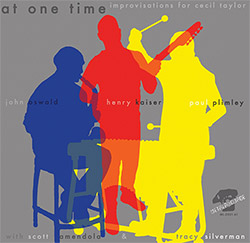


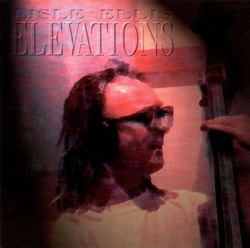
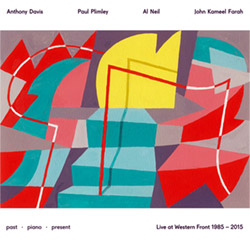
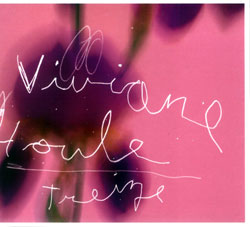
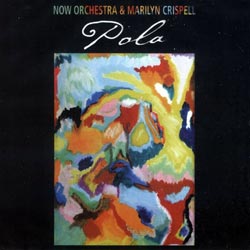
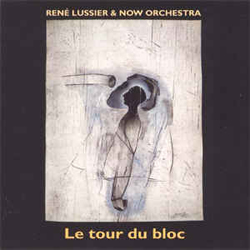


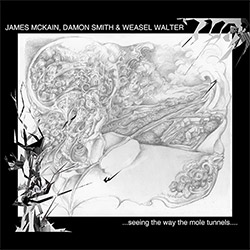
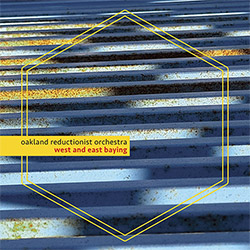
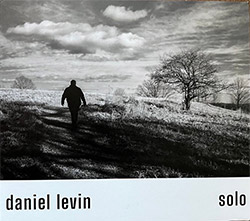

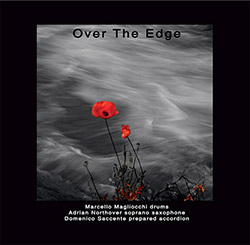
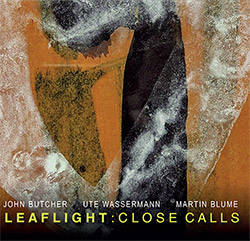




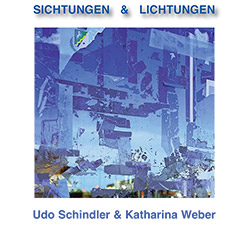


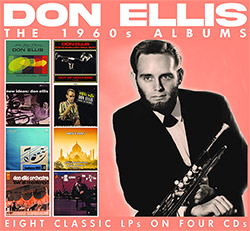
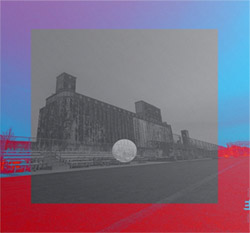
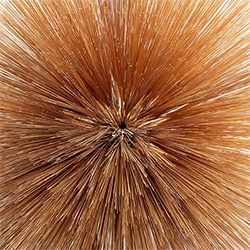

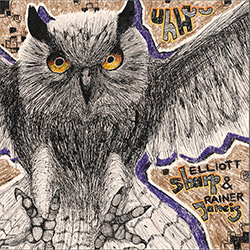
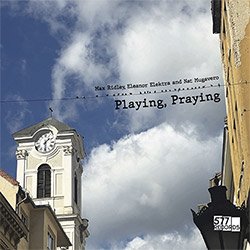

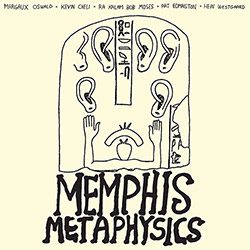
![Hoffman, Christopher: REX [VINYL]](https://www.teuthida.com/productImages/misc4/36934.jpg)
![Wrens: Half Of What You See [VINYL]](https://www.teuthida.com/productImages/misc4/37095.jpg)

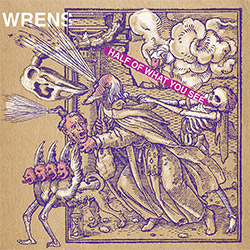
![Cartier, Pierre: Chansons de Douve [2 CDs]](https://www.teuthida.com/productImages/misc3/cartierChansonsDouve.jpg)



![Davies, Angharad / Burkhard Beins : Meshes Of The Evening [VINYL]](https://www.teuthida.com/productImages/misc4/36990.jpg)
![Bussmann, Nicholas / Sven-Ake Johansson / Yan Jun: Tea Time [Vinyl]](https://www.teuthida.com/productImages/misc4/36991.jpg)
![Feldman, Morton / GBSR Duo w/ Taylor MacLennan: Trios [6 CD BOX SET]](https://www.teuthida.com/productImages/misc4/37020.jpg)
![Williams, Jessica: Blue Abstraction: Prepared Piano Project 1985-1987 [VINYL]](https://www.teuthida.com/productImages/misc4/37080.jpg)
![Levin, Daniel / Laurent Estoppey: Freedom From The Known [VINYL]](https://www.teuthida.com/productImages/misc4/37091.jpg)
![Fagaschinski, Kai: Aerodynamics [VINYL 2 LPs]](https://www.teuthida.com/productImages/misc4/36992.jpg)
![Allbee, Liz: Breath Vessels [VINYL]](https://www.teuthida.com/productImages/misc4/37012.jpg)
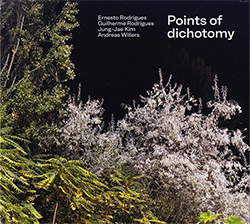
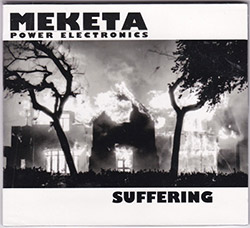


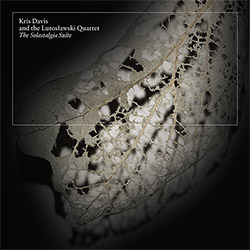
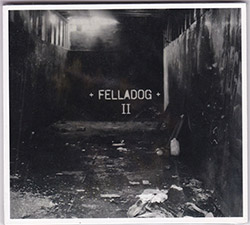


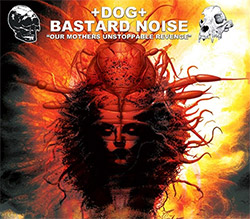



![Parker, Evan / Andrea Centazzo: Bullfighting On Ice! Live In Padova 1977 [VINYL]](https://www.teuthida.com/productImages/misc4/37064.jpg)
![Curran, Alvin / Andrea Centazzo / Evan Parker: Real Time [VINYL]](https://www.teuthida.com/productImages/misc4/37065.jpg)
![Curran, Alvin / Andrea Centazzo / Evan Parker: Real Time Two [VINYL]](https://www.teuthida.com/productImages/misc4/37066.jpg)
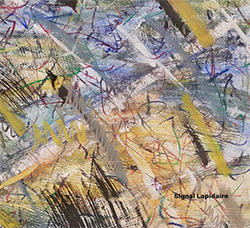

![Rodrigues, Ernesto / Jung-Jae Kim / Guilherme Rodrigues / Eric Bauer / Stephen Flinn: 5 In The Afternoon [2CDs]](https://www.teuthida.com/productImages/misc4/36957.jpg)



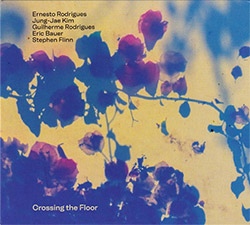





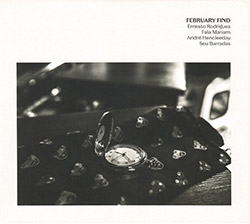
![Evans, Peter / Being & Becoming: Ars Ludricra [VINYL + DOWNLOAD]](https://www.teuthida.com/productImages/misc4/37026.jpg)

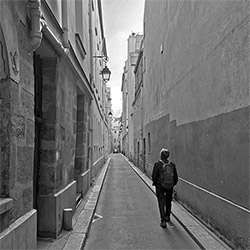
![Belorukov, Ilia / Alex Riva: Wrestling For Futility [CASSETTE w/DOWNLOAD]](https://www.teuthida.com/productImages/misc4/36994.jpg)


![Genthon, Anouck / Lionel Marchetti: Suite Blanche [2 CDs]](https://www.teuthida.com/productImages/misc4/36642.jpg)
![Toeplitz, Kasper T.: Erosions Programmees [CD + BOOKLET]](https://www.teuthida.com/productImages/misc4/36639.jpg)
![Gate, The : Almost Live [CASSETTE + MAGAZINE]](https://www.teuthida.com/productImages/misc4/36836.jpg)






![A Magic Whistle: The Solar Cell [VINYL]](https://www.teuthida.com/productImages/misc4/36658.jpg)

![McGee, Hal: Columbus Expedition [Cassette w/ Download]](https://www.teuthida.com/productImages/misc4/36650.jpg)


![Jaeger, Kassel: Fernweh [VINYL 2 LPs]](https://www.teuthida.com/productImages/misc4/36541.jpg)




![Frey, Jurg : Composer, Alone [3 CDs]](https://www.teuthida.com/productImages/misc4/36927.jpg)








![Frey, Jurg with ensemble]h[iatus: Je Laisse A La Nuit Son Poids D](https://www.teuthida.com/productImages/misc4/36988.jpg)




![Pisaro-Liu, Michael: Within (2) / Appearance (2) [2 CDs]](https://www.teuthida.com/productImages/misc4/36831.jpg)










![Musicworks Magazine: #151 Summer 25 [MAGAZINE + CD]](https://www.teuthida.com/productImages/misc4/36559.jpg)

![Brown, Dan / Dan Reynolds: Live At The Grange Hall [unauthorized][CASSETTE]](https://www.teuthida.com/productImages/misc4/36245.jpg)

![Zorn, John: The Song of Songs [CD + CD BOOK]](https://www.teuthida.com/productImages/misc4/36923.jpg)

![Coultrain: Mundus [COLORED VINYL]](https://www.teuthida.com/productImages/misc4/33056.jpg)
![Hprizm: Signs Remixed [COLORED VINYL]](https://www.teuthida.com/productImages/misc4/30635.jpg)
![Halls Of the Machine: All Tribal Dignitaries [CASSETTE w/ DOWNLOAD]](https://www.teuthida.com/productImages/misc4/36134.jpg)



![Koenjihyakkei: Live at Club Goodman [2 CDs]](https://www.teuthida.com/productImages/misc4/36111.jpg)

![Sorry For Laughing (G. Whitlow / M. Bates / Dave-Id / E. Ka-Spel): Rain Flowers [2 CDS]](https://www.teuthida.com/productImages/misc4/35985.jpg)

![Rolando, Tommaso / Andy Moor : Biscotti [CASSETTE w/ DOWNLOADS]](https://www.teuthida.com/productImages/misc4/36106.jpg)


![Electric Bird Noise / Derek Roddy: 8-10-22 [CD EP]](https://www.teuthida.com/productImages/misc4/35970.jpg)








![Elephant9 : Mythical River [VINYL]](https://www.teuthida.com/productImages/misc4/34624.jpg)



![Elephant9 with Terje Rypdal: Catching Fire [VINYL 2 LPs]](https://www.teuthida.com/productImages/misc4/35355.jpg)
![Coley, Byron: Dating Tips for Touring Bands [VINYL]](https://www.teuthida.com/productImages/misc4/17906.jpg)

![Lost Kisses: My Life is Sad & Funny [DVD]](https://www.teuthida.com/productImages/misc4/lostKissesDVD.jpg)